By Vox Civis
One of the constants of life is that human beings evolve with time. But in Sri Lanka, that evolution seems to occur at breakneck speed, especially among those who sit in Parliament. Over the past year, the National People’s Power (NPP) leaders, the self-proclaimed champions of the underprivileged, appear to have undergone a remarkable metamorphosis. The slim, fiery, frugal comrades of yesterday have become rounder in form and grander in speech; and not just because of the comforts of ministerial office. Their words, usually dripping with compassion for the downtrodden, are being replaced with contempt for the very people who placed them in power.
It was only last year that NPP MPs publicly portrayed themselves as humble servants of the poor; politicians who ‘lived off the generosity’ of ordinary people because they ‘rejected corruption.’ They were seen as the anti-thesis of the ‘robbers’ of the old political order. But these same men and women have now begun speaking a very different language. The obligatory asset declarations which exposed several ‘poor’ comrades as multi-millionaires, seems to have awakened something other than guilt: the humility that propelled them to high office has seemingly given way to hubris and what was once empathy has curdled into disdain.
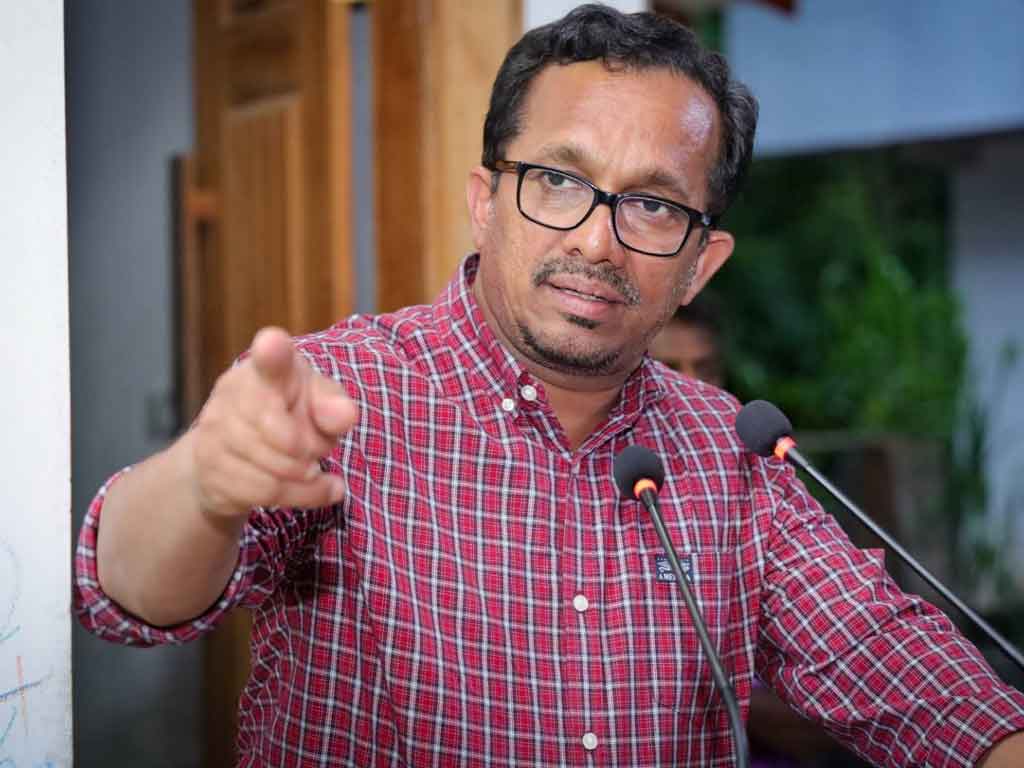
The most glaring example came recently from Minister Sunil Handunnetti, who declared that “sections of our society should feel ashamed to be dependent on welfare.” To accept welfare, he said, was akin to “legalised begging.” That sentiment, uttered by a man who not long ago claimed he could not afford a haircut and wore clothes donated by friends, is staggering in its hypocrisy.
Just last year, Handunnetti is on record telling the country that he survived on the goodwill of comrades like his friend Jayashantha, who provided him food and clothing. If accepting welfare is ‘legalised begging,’ what then were those acts of generosity that kept him and his fellow comrades afloat for decades? The irony is not only poetic but also political, for, it exposes the moral hollowness that defines the party that prided itself on moral purity.
Politics of welfare
Welfare is not a trivial subject. In every country, from the United States to the United Kingdom to Sri Lanka, welfare policy is one of the most politically charged issues a government can face. The moral question is not whether welfare should exist, but how it can be designed to preserve human dignity while ensuring accountability. No leader – least of all one from a movement that claimed to represent workers, farmers, and the poor should ever ridicule those who depend on social safety nets.
Sri Lanka has struggled for decades to strike a balance between work and welfare. The Janasaviya programme of the early 1990s, which linked welfare payments to productive community work, was one of the few attempts to integrate social support with economic participation. But successive governments dismantled this innovative system for political gain. Nowadays, eligibility criteria have become so distorted that nearly 70 percent of the population is reported to have applied for some form of welfare benefit. It is this absurdity that Handunnetti seemed to allude to, yet his choice of words and tone only reeked of one thing, arrogance.
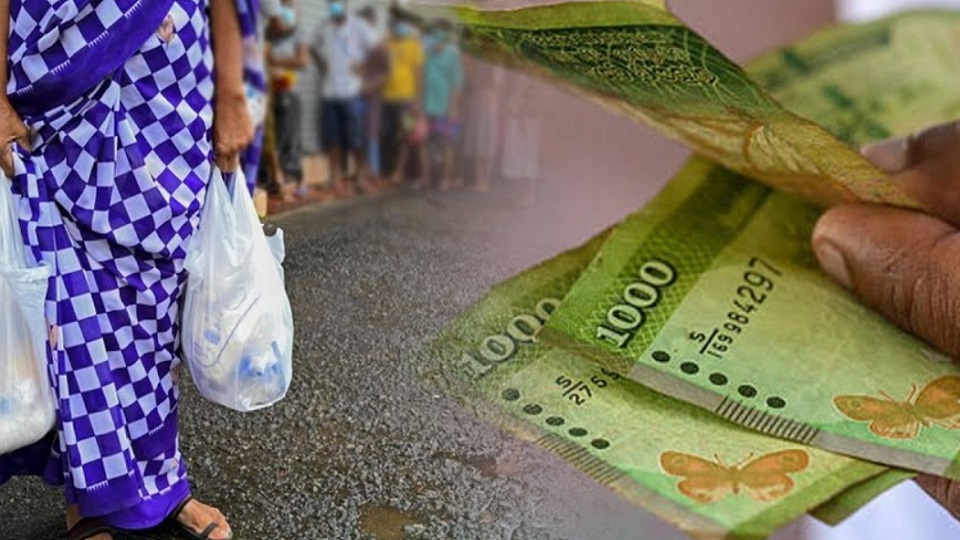
The NPP in general and Handunnetti in particular must understand that a government’s duty is not to shame the poor but to empower them. When the World Bank reports that Sri Lanka’s poverty rate has doubled since the economic crisis – rising from around 10-12 percent to roughly 25 percent, with another 10 percent hovering on the brink – the moral imperative is clear. A country in crisis must protect its most vulnerable citizens. Therefore, for the NPP which was built on the rhetoric of social justice to deride welfare recipients is not merely being tone-deaf but also amounts to betrayal of its ideological DNA.
Handunnetti’s statement cannot be dismissed as just a lapse of judgment but rather as indicative of a deeper transformation within the NPP. The party that revealed it depended on the generosity of ordinary people is fast turning in to one that despises dependency. The same villagers who fed and housed NPP activists are now routinely derided as ‘beggars.” This reversal speaks volumes about how power alters not only lifestyles but even the moral compasses.
Crisis of credibility
The NPP’s credibility crisis does not end with Handunnetti. Another minister who once tearfully described how he survived on handouts of rice, coconuts, and bananas from villagers is boasting of having been a man of means all along, even claiming to have financed his friends’ board and lodging during his student days. The contradictions are comical, but they all point to the governing class losing touch with the people.
The 2026 Budget presented by the President in Parliament last Friday, appears to be once again heavy on promises while research shows that less than 30 percent of the allocations made in last year’s budget were actually spent during the year.
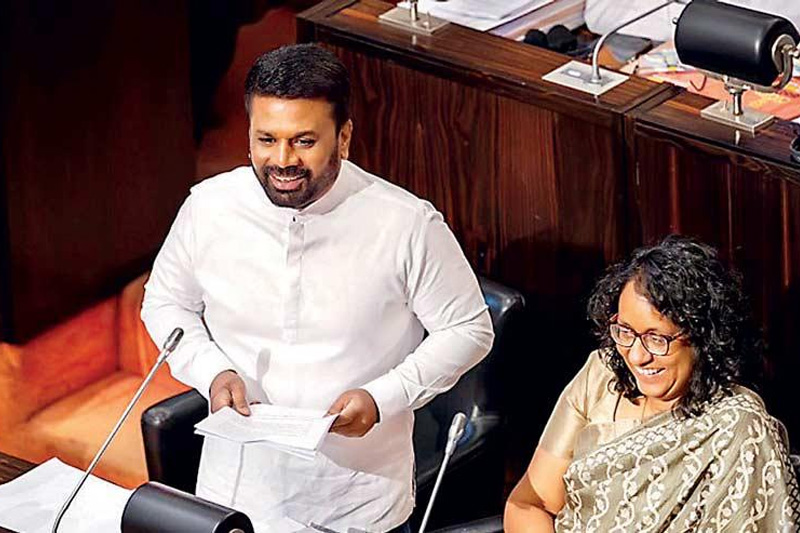
Given this backdrop, the NPP manifesto carries an interesting promise to introduce a law whereby if any party fails to deliver on its election pledges, citizens could sue to confiscate the party’s assets. Yet, in the President’s long and largely self-congratulatory budget speech, there was no mention of this seemingly progressive promise in a milieu where the majority of its budget allocations last year remained unspent. What is apparent is that while it’s easy to talk – for hours – actual implementation is an altogether different story.
Meanwhile the President boasted that USD 823 million had come in foreign direct investment (FDI) inflows by September 2025, but that figure translates to less than USD 100 million per month meaning the country will end the year with barely over USD 1 billion in investments, only half the targeted USD 2 billion. Tourism, too, has failed to live up to expectations on the revenue side as even though arrival numbers have seen an increase, earnings seem to be heading in the opposite direction.
The economic mirage
Beyond rhetoric, the Auditor General’s report tells a grim story. The government recently released the financial results of 52 state-owned enterprises (SOEs) for the first half of 2025. Collectively, have profits dropped from Rs. 280.7 billion in 2024 to Rs. 227.8 billion this year, a notable decline of Rs. 52.9 billion in just the first six months. To put that number in context, it is more than the entire budget allocation for rural development next year.
The Ceylon Electricity Board (CEB), which made a profit under the previous administration, has reported a hefty loss of Rs. 13.2 billion in the first half of this year, even after tariff hikes and monopoly status. The Ceylon Petroleum Corporation’s profits have also fallen by a significant margin while the heavily indebted SriLankan Airlines, even after a Rs. 20 billion bailout in last year’s budget, has still managed to lose Rs. 12 billion.
The pattern is concerning for the simple reason that institutions that proved they could be profitable as recently as last year, have been turned into loss-making entities. The opposition has been quick to point out that notwithstanding the allegations of corruption, state institutions appear to have performed better under the previous administration going by the financial results disclosed recently. It seems that the NPP is learning the hard way that transparency, competence, and consistency – not ideological posturing – are what sustain a nation’s enterprises.
Yet the NPP leadership, steeped in decades of trade-unionist opposition to privatization and market reform, appears lost in its own contradictions. However, to its credit, the government has pledged to introduce a Public-Private Partnership (PPP) Bill in Budget 2026 aimed at attracting private capital and improving efficiency. But will this initiative survive the ideological hostility of its own rank and file is yet to be seen.
For a party whose very identity was built on opposing privatization, the embrace of PPPs is politically explosive. The NPP’s veteran unionists, who protested against every development project from highways to the MCC proposal to Free Trade Agreements, are now finding themselves on the other side of the fence and in charge of attracting investors. The tragic irony is that those who spent their entire lives shouting slogans against any form of reform are now promising to deliver it.
Be that as it may, it is noteworthy that ideological paralysis almost always has real consequences. Without robust FDI and export growth, Sri Lanka’s anticipated GDP expansion barely covers the country’s debt service requirements despite the President’s optimism during the budget presentation. Meanwhile, debt continues to mount. The national debt rose by Rs. 1 trillion in just six months – from Rs. 28.7 trillion in December 2024 to Rs. 29.7 trillion by June 2025, translating to a daily increase of Rs. 5.6 billion.
Losing the moral compass
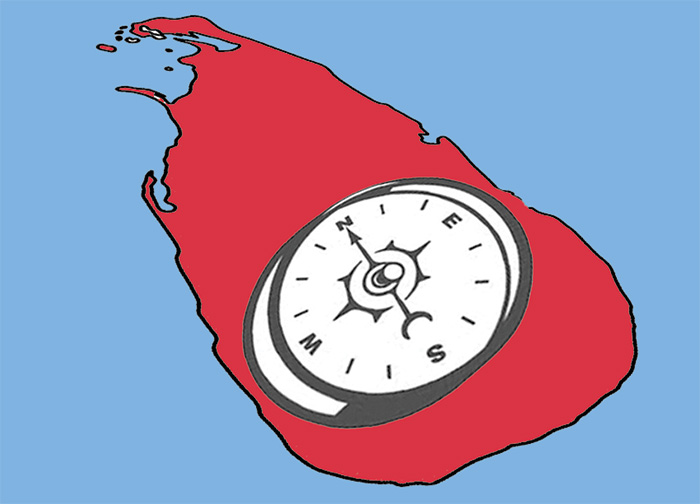
The deeper problem lies not only in economic management but in the moral decay that accompanies power. The NPP came to office as a symbol of integrity; a promise that ‘things would be different.’ Its leaders swore to end political appointments, abolish waste, and restore professionalism to the state service. Yet the reverse has occurred. Widespread allegations of nepotism and favoritism have demoralized the public sector. Promotions are said to be determined not by merit but by loyalty. Bureaucrats whisper that the ministries are now filled with party cadres rather than professionals.
The scandal over the planned import of new vehicles for state officials is emblematic of this hypocrisy. According to Cabinet Spokesman Nalinda Jayatissa, senior officials have complained they cannot “meet their targets” with old vehicles, an excuse so detached from public suffering that it borders on obscene. Sri Lanka already owns more state vehicles per capita than Australia by a factor of ten. For this government that campaigned on simplicity and sacrifice, such extravagance is an insult to every taxpayer struggling under higher VAT, income, and property taxes of which there was no relief in Budget 2026.
Meanwhile, the same government that mocks welfare recipients continues to spend billions maintaining a bloated state apparatus, with Budget 2026 making provision for recruiting another 75,000 to the state sector. The top four state sector profit-making institutions for the last financial year – the Bank of Ceylon, People’s Bank, National Savings Bank, and Employees’ Provident Fund – account for over Rs. 153 billion of the Rs. 227 billion total profits across all SOEs. In other words, almost all state profit now comes from the savings and deposits of ordinary citizens, not from efficient enterprise or innovation. The bottom-line being that productive sectors remain stagnant, while the state thrives on the public’s hard-earned money.
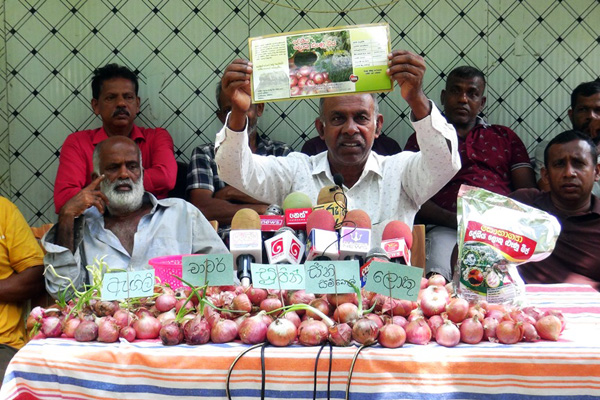
If there were any lingering doubts about how detached the government has become from reality, one only needs to visit the Economic Center in Dambulla. Vegetables rot unsold, onions have piled up, and farmers are despairing. The regime’s erratic agricultural policies have turned cultivation into a gamble. In 2024, Sri Lanka imported 73,000 tons of onions; in 2025, that figure has nearly doubled to 144,000 tons while local farmers beg for protection. The Trade Minister’s response to the wailing farmers, has been nonchalance.
This policy confusion is not just about agriculture; it reflects a deeper ideological contradiction. The NPP cannot decide whether it wants to be a socialist administration or a reformist one. While it preaches welfare on the one hand, it condemns the poor on the other. It denounces privatisation but seeks private partnerships. It vows fiscal discipline but expands state consumption. Each step forward is followed by two steps backward, as the party wrestles between its revolutionary past and the pragmatic demands of modern governance.
Illusion of change
The tragedy of Sri Lanka’s current situation is not simply that the NPP is struggling to get things going; it is that it has become what it opposed all along. It seems that power, rather than purifying, has corrupted. The same politicians who slept in humble homes and shared rice with villagers are suddenly speaking the language of the elites and mocking the poor. They have discovered, as so many before them, that it is easier to criticise than to govern, and by extension, even easier to forget the promises made while in the opposition benches.
But governance is not theatre. It demands vision, humility, and the courage to admit mistakes. A nation cannot be led by resentment or ideology alone. What Sri Lanka needs today is not more speeches about “begging” or “dependency,” but a coherent strategy to lift people out of poverty, restore investor confidence, and stabilise the economy. Budget 2026 unveiled last Friday is unlikely to deliver on this fundamental aspect.
The way forward
The NPP still has a chance to reclaim its moral high ground if it is willing to rediscover the empathy that defined it all this time. The first step is to stop shaming the poor and start fixing the systems that keep them poor. Welfare must be reformed, not ridiculed. The Janasaviya model that linked assistance to productive contribution, remains a sound template. Transparency in welfare distribution, rationalisation of eligibility, and support for micro-enterprise development can restore both dignity and accountability.
Secondly, the government must stop treating the private sector as an enemy at times and a bottomless pit at other times. The PPP Bill must not remain a token gesture. Real reform requires depoliticising state enterprises, allowing competition, and attracting strategic investors, even in sectors long considered ‘untouchable.’ A nation cannot grow by clinging to dogma; it grows by adapting to change.
Finally, fiscal discipline must begin at the top. Ministers who prided themselves on austerity must lead by example. Every rupee spent on luxury vehicles conveniently categorized as double cabs, is a rupee stolen from education, healthcare, and poverty alleviation. The government cannot ask citizens to tighten their belts while loosening its own.
From revolution to regression
In the end, the story of the NPP is not merely political; it is moral. It is a parable of how ideals decay when confronted by comfort. The comrades who depended on ‘friends’ for fuel are now hungry for luxury SUVs and double cabs. The irony is that those who lived on the generosity of the poor have acquired the audacity to call the poor “beggars,” and the movement that promised a new dawn has begun to look suspiciously like the old regime it replaced.
Sri Lanka cannot afford another government that loses its soul in the pursuit of power. If the NPP wishes to survive – let alone succeed – it must remember the faces of those who fed it when it was hungry, sheltered it when it was homeless, and believed in it when no one else did. For if it forgets them now, the people will not forget in return.


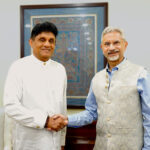
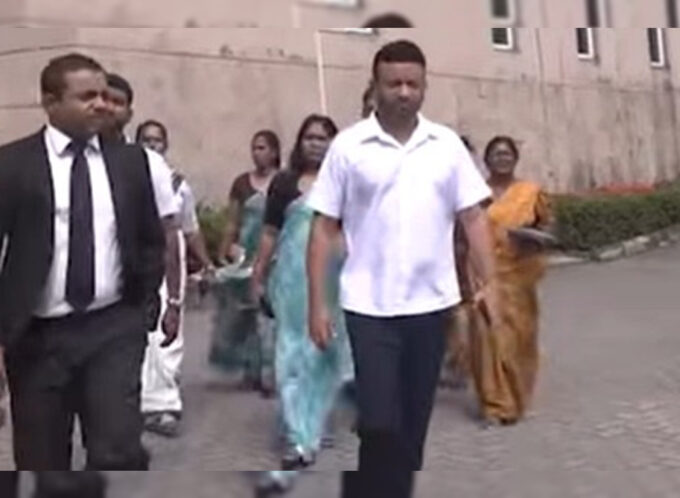
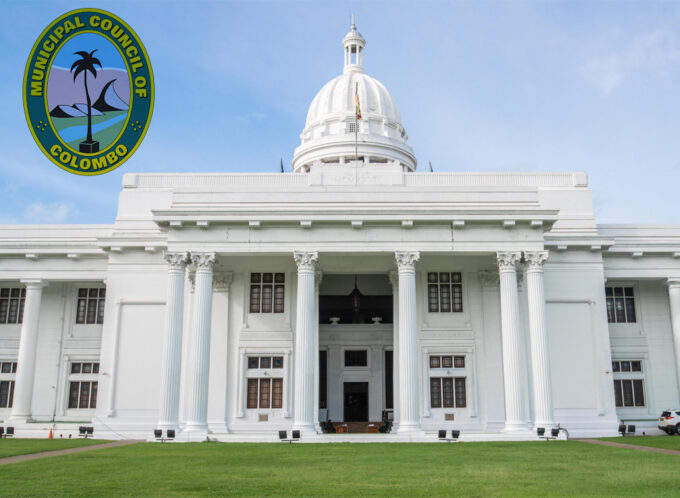
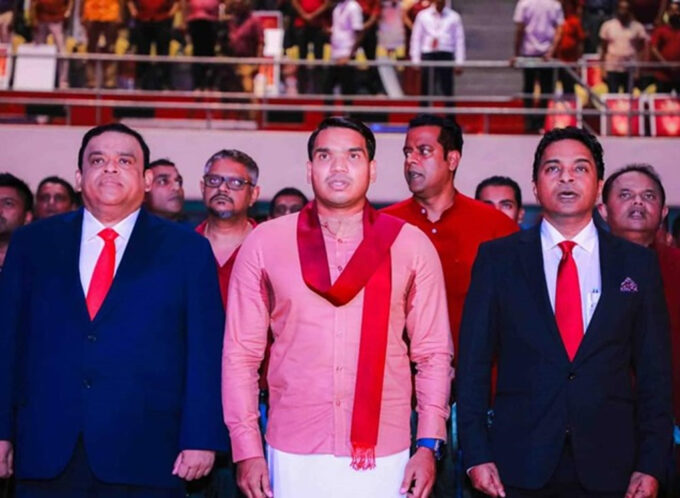


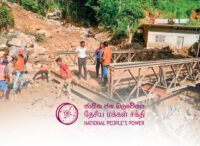


Leave a comment